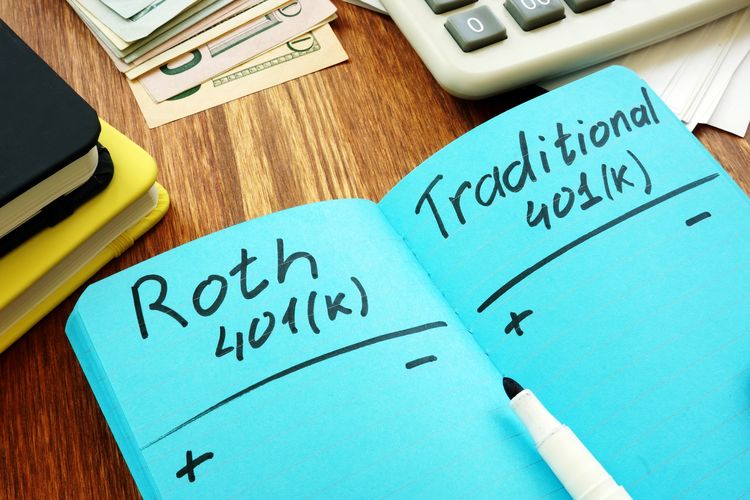Is A 401k Better Than A Pension?
Any thoughts about retirement inevitably include thinking about finances. When should you start gearing your financial planning toward retirement? How much money will you need to live comfortably? What are the best choices when it comes to financial options you can rely on after you’re no longer working?
Employer-sponsored plans such as pensions and 401(k)s are two options definitely worth considering when it comes to planning for and building a better retirement. Here’s what you need to know about each option, and how they can benefit you financially in the days, and years, ahead.

Pension Plans
A pension plan is what is known as a defined benefit plan: You receive a specified payment amount, usually in the form of monthly checks or a lump sum, during your retirement years. Pensions are funded by your employer, not by you; the company puts aside a certain sum of money and invests it on your behalf.
How much money you’ll receive in pension funds depends on these three factors:
- Your annual salary
- The number of years you’ve worked for the company/employer
- Your age at the time of retirement
To be eligible to receive a pension, you must be vested with your workplace, meaning that you need to work for the company or employer for a certain number of years before you qualify for a pension.

401(k) Plans
A 401(k) is a defined contribution plan, which means your retirement benefits are determined by the amount of money both you and your employer contribute to the plan. In some instances, your employer might match a portion of the money you contribute to the plan, up to a certain percentage of your income.
For example, if you contribute 10% of your salary to your 401(k) plan and you earn $2,000 each pay period, $200 will be taken deducted from your pay and contributed to your 401(k). Your employer might commit to contributing 50 cents for every dollar you contribute to the plan, up to 6% of your salary.
It’s important to note that a 401(k) is tax-deferred: The money grows tax-free until you begin to make withdrawals in retirement. If, however, you withdraw funds before age 59 ½ you’ll owe taxes and be required to pay a 10% penalty as well.

Which Is The Better Retirement Option?
Both pensions and 401(k)s offer secure retirement options, but the plans differ in how money is contributed and how funds are dispersed upon your retirement.
- While pensions are usually funded entirely by employers, 401(k)s are primarily funded by employee savings that may be supplemented by employer contributions.
- You can access your pension in retirement after having worked for the employer for a certain number of years, regardless of whether you leave your position years before retirement. When you leave a job where you have a 401(k), you can leave the account where it is or decide to roll it over into a traditional IRA.
- A pension offers guaranteed payments in retirement until you die, providing that the company or employer remains in business and is financially solvent. With a 401(k), you can make penalty-free withdrawals in any amount after age 59 ½, but attention must be paid to the amount and number of withdrawals made in order to ensure that the funds are exhausted sooner than you had originally planned.
Because pensions, on average, are more expensive than 401(k)s, employers tend to favor offering employees the latter option. According to the most recent data from the U.S. Bureau of Labor Statistics, about 65% of private industry workers have access to a 401(k), while only 15% have a pension.
